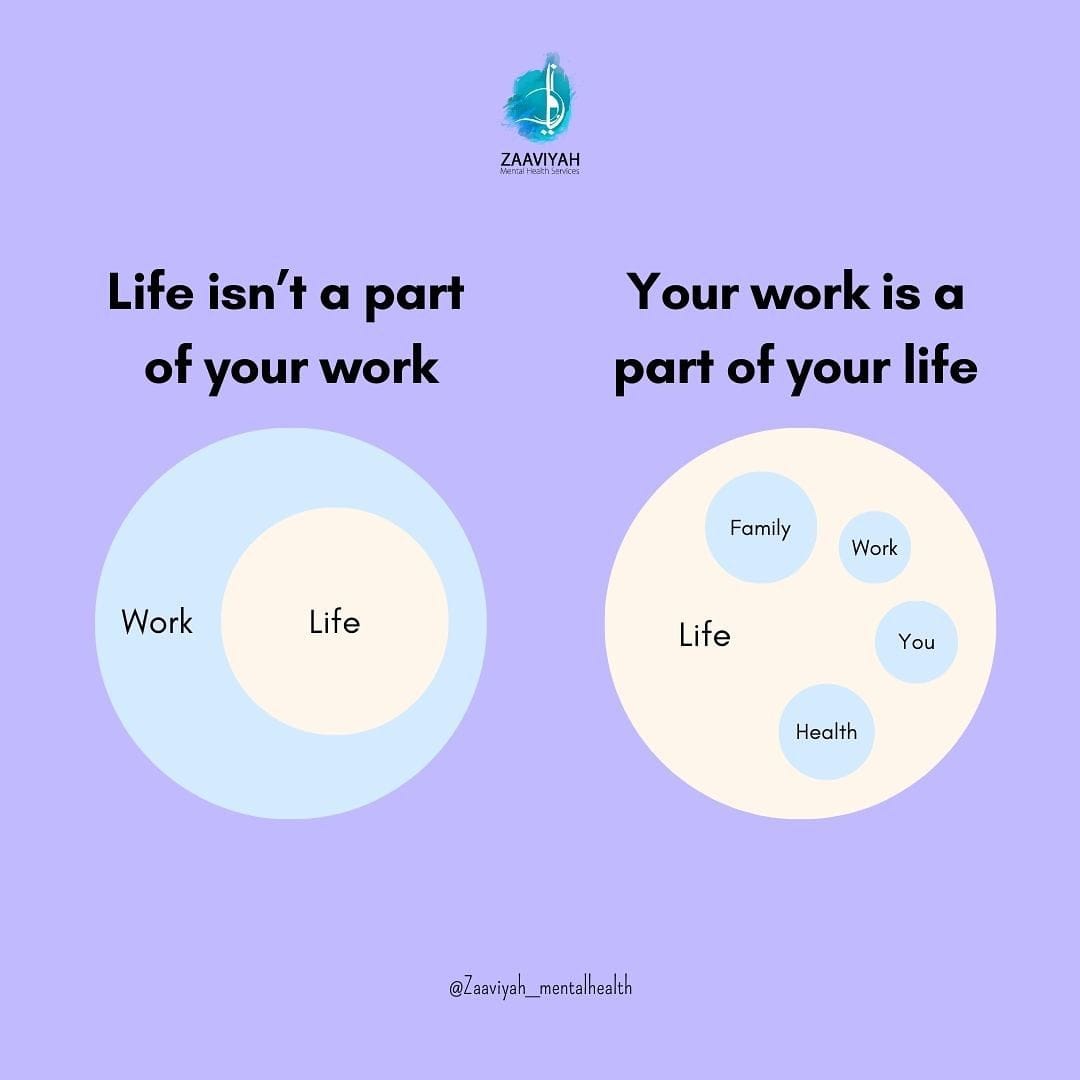Welcome to The Happier Newsletter, a weekly newsletter where I provide actionable ideas to help you build a happier, healthier, and more meaningful life.
What’s On Today
- Topic: 5 Strategies for Work-Life Balance You’ll Wish You Tried Sooner
- Article: 8 Reasons People Are Quietly Quitting
- Visual: Rethinking the Role of Work in Our Lives
- Gratitude: 3 Things I’m Grateful For This Week
5 Strategies for Work-Life Balance You’ll Wish You Tried Sooner

One of the biggest challenges I've noticed in work environments is the constant struggle to maintain a meaningful work-life balance. This is something I’ve wrestled with over the years—and to be honest, it’s still a work in progress.
Now, a healthy work-life balance looks different for everyone and naturally changes as we move through various stages of our careers and lives. But ultimately, finding balance begins with clarity on what truly matters to you. What values do you hold close? What trade-offs are you prepared to make to create the life you want?
Here are 5 strategies inspired by organisational psychologist Sir Cary Cooper to help you foster a sense of work-life balance.
Strategy 1. Set Boundaries
Marc Randolph, the co-founder of Netflix, is a great example of someone who is very ambitious, and yet, has a great work-life balance; all because he made sure that he set clear boundaries for himself.
As he wrote on LinkedIn:
I’ve worked hard, for my entire career, to keep my life balanced with my job. In my book, I write about my Tuesday date nights with my wife. For over thirty years, I had a hard cut-off on Tuesdays. Rain or shine, I left at exactly 5 pm and spent the evening with my best friend. We would go to a movie, have dinner, or just go window-shopping downtown together.
Nothing got in the way of that. No meeting, no conference call, no last-minute question or request. If you had something to say to me on Tuesday afternoon at 4:55, you had better say it on the way to the parking lot. If there was a crisis, we are going to wrap it up by 5:00.
Those Tuesday nights kept me sane. And they put the rest of my work in perspective.
I resolved a long time ago to not be one of those entrepreneurs on their 7th startup and their 7th wife. In fact, the thing I'm most proud of in my life is not the companies I started, it’s the fact that I was able to start them while staying married to the same woman; having my kids grow up knowing me and (best as I can tell) liking me, and being able to spend time pursuing the other passions in my life.
That’s my definition of success.
Strategy 2. Switch Off Outside Work
In today’s hyper-connected world, it’s easy to feel like work is always “on.” Our devices mean we’re just a tap away from emails and messages, even after hours, which can quickly eat into our personal time.
Research shows that the average worker checks their work email outside office hours nearly half the time. According to the National Sleep Foundation, 60% of people check their emails after work and 44% check work-related messages on weekends.
While staying on top of urgent matters has its place, constantly checking work emails over weekends or during holidays disrupts downtime, hinders recharge time, and raises stress levels. This creates a cycle where checking emails leads to more work thoughts, making it harder to fully disconnect.
By consciously turning off work notifications—especially during personal time and holidays—you create space for activities that recharge you and prevent overworking.
Strategy 3. Stay Connected Personally
Prioritising quality time with friends and family isn’t just about feeling good—it provides a mental and emotional reset. Regular gatherings, like a weekly coffee date or family dinner, create space to unwind, laugh, and shift focus from work. This time boosts mental health and reminds you of what truly matters. For example, a set “friend call” every Thursday night could give you a mid-week break to recharge and de-stress.
Strategy 4. Build a Good Work Relationship
reating strong relationships with colleagues makes the work environment more enjoyable and contributes to a balanced work-life. Ali Abdaal’s approach of focusing on Play, Power, and People is a helpful guide:
- Play: Find moments to add fun to the workday. Whether it’s sharing a joke, setting up team lunches, or casual after-work gatherings, these moments build a sense of belonging. A simple “Friday Fun” ritual—like a weekly trivia game or sharing a funny story—reduces stress and strengthens bonds, making work feel more energising.
- Power: Build influence through trust and respect, not hierarchy. Show support and reliability with your colleagues, creating a strong team dynamic where everyone feels valued. For example, if a teammate is struggling, offer your help or lend a listening ear. This support makes setting boundaries easier, as others respect them when they see you as a team player.
- People: Connect with colleagues on a human level. Learn about their interests outside work, celebrate their milestones, and acknowledge their efforts. Small gestures, like asking about weekend plans or recognising good work, foster camaraderie. In turn, you’ll find your own work-life boundaries are easier to protect in a supportive environment where respect is mutual.
By focusing on Play, Power, and People, you build a workplace that balances productivity with a sense of community, making work more fulfilling and less intrusive on personal time.
Strategy 5. Lead with Kindness
Kindness is powerful, especially at work. Small acts, like covering for a colleague who needs a break or sharing a word of encouragement, contribute to a culture that values people just as much as productivity. When people feel supported, they’re less likely to burn out and more likely to pay kindness forward.
Leading with kindness benefits those around you—and reminds you that empathy and understanding are as essential as any task. If someone’s stressed about a deadline, offering a few minutes to help or listen can make a big difference and strengthen team bonds.
This kindness-driven culture helps everyone maintain balance, as each person feels like part of a supportive, collaborative team.
8 Reasons People Are Quietly Quitting
I recently stumbled across a great article on LinkedIn, called ‘8 Reasons Your Best Employees Are Quietly Quitting.’
This article gives a great overview of possible reasons why you may feel like work is taking over your life. If so, it might be worth discussing with your manager to see if there’s a way to address the issue and find a better balance. On the other hand, if you’re the manager, take this as a reminder to avoid these pitfalls and create an environment where your team feels valued, supported, and engaged.
Here is an overview of the 8 reasons:
- Overworked but under appreciated: Employees who feel their hard work is ignored can quickly become demotivated. When their efforts aren't acknowledged, it can lead to burnout and disengagement, as they start to feel like their contributions don’t matter.
- Stuck in a dead-end role: Top performers thrive on challenges and growth. Without clear opportunities for advancement or skill development, they may feel stagnant, causing their enthusiasm and commitment to wane.
- Micromanaged to death: Constantly being supervised can make employees feel like they lack trust and autonomy. This not only reduces their motivation but also stifles their creativity and problem-solving abilities, making them feel more like workers than contributors.
- Toxic team culture: A negative or hostile team environment can drain energy and morale. If the team dynamic is marked by drama, gossip, or unhealthy competition, it can diminish job satisfaction and lead to high turnover.
- No connection to company vision: Employees want to feel that their work has a purpose. If they don’t understand how their efforts contribute to the company’s broader mission or vision, their work can start to feel meaningless, leading to disengagement.
- Unbalanced work-life integration: When employees are overwhelmed by work demands and don’t have time for personal lives, it can lead to burnout. This lack of balance can cause stress and decrease job satisfaction, as people begin to prioritize their well-being over their job.
- No feedback, no growth: Employees need feedback to understand their strengths and areas for improvement. Without regular, constructive feedback, they can feel directionless and unsupported, which prevents them from growing and staying motivated.
- Poor leadership: Leadership sets the tone for the workplace culture. When leaders lack transparency, empathy, or the ability to connect with their teams, it creates a disconnect that leads to disengagement, as employees feel unsupported and undervalued.
Rethinking the Role of Work in Our Lives

3 Things I’m Grateful For This Week
- Grateful for the chance to travel and work with inspiring communities this week
- Thankful for new opportunities to share my message through radio interviews
- Appreciative of the support from friends, family, and colleagues along the way
What are you grateful for this week?
